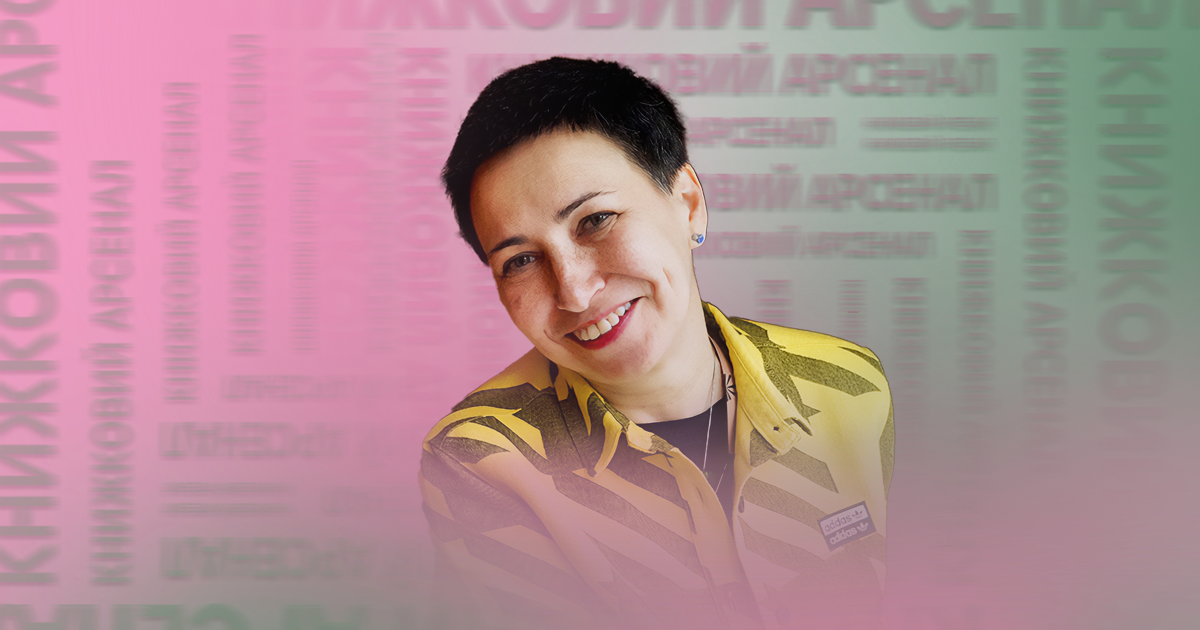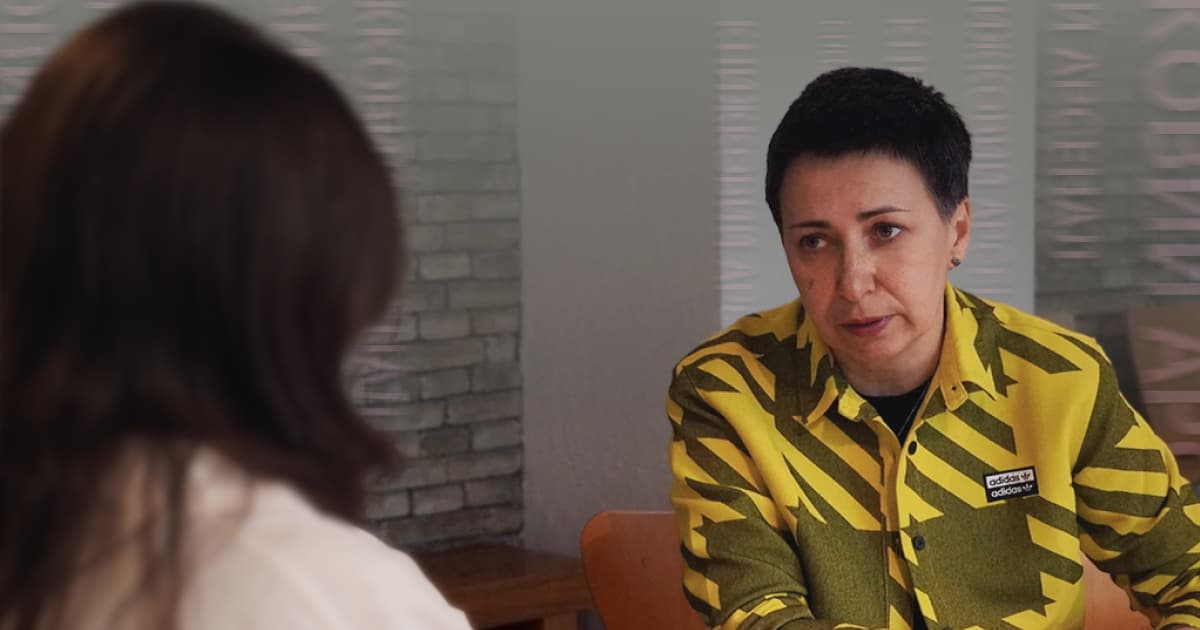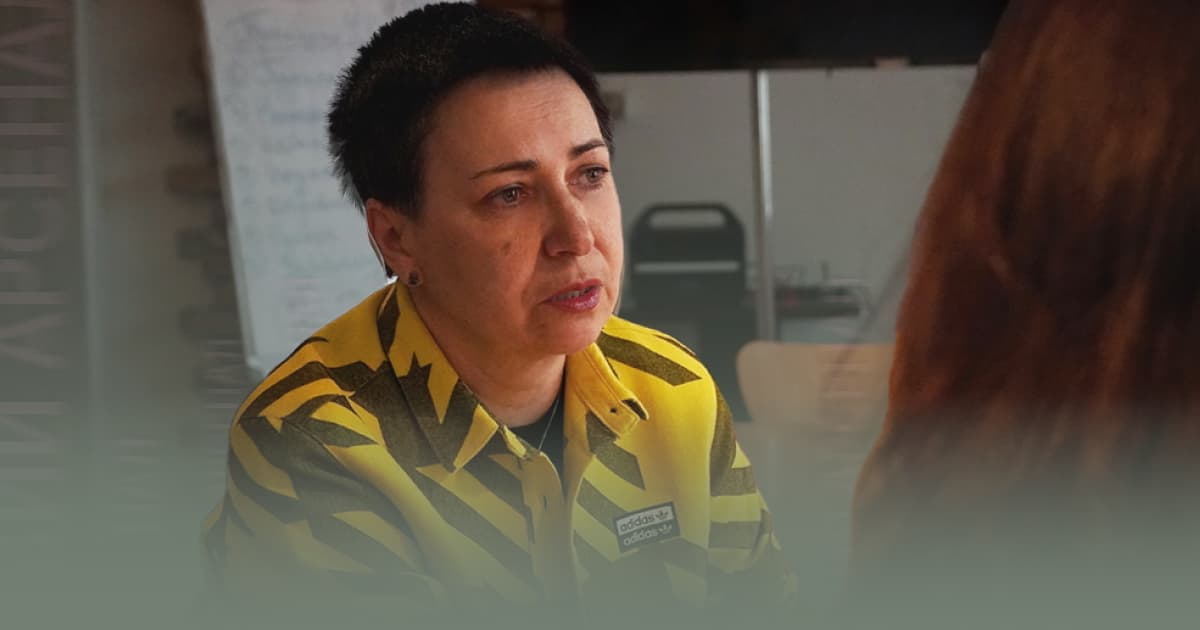"A space that unites people around books": An interview with Yuliia Kozlovets, Head of the Book Arsenal

The Book Arsenal is a project founded in 2011 by the Mystetskyi Arsenal National Art and Culture Museum Complex. Every year, its goal is to stimulate the qualitative development and interaction of the book, literary, and artistic scenes. The organisers create a friendly space for book representation. They also integrate the Ukrainian and international book and literary communities.
In 2023, the 11th Book Arsenal will take place from June 22 to June 25.
Read about how this year's festival will be held, what has changed, what difficulties and challenges the organisers have faced, and what message the book event sends to the global media market in an interview with Yuliia Kozlovets, Head of the International Book Arsenal Festival.
— How would you describe the Book Arsenal? What is it about?
— The Book Arsenal is the best festival in the world in its field, and we have a document that proves it (laughs — ed.) In 2019, at the London Book Fair (International Publishing Industry Excellence Awards — ed.), our project was named the best book festival in the world.
The 11th festival will take place in 2023, and it is an initiative that has shaped a certain picture of the book world over the years of its existence. The festival has changed a lot in the [book] industry. It shapes and follows trends, changes people's attitudes towards them. It is a landmark project for the book and cultural industries in Ukraine.
In terms of visitors, it is a place where they can fully immerse themselves in the book atmosphere. Even though it's not just about books. These are great authors, illustrators, designers, musicians, poets, and writers. Everyone finds their place and purpose at the festival. It is about a space where it is safe and pleasant to be, which unites different people around a book.

— What can we expect from this year's Book Arsenal? What are the innovations in terms of format and programme?
— This year, we are making a completely different festival in terms of its idea, structure, and approaches. It will be much smaller due to security restrictions.
The festival has always consisted of two parts: a programme (cultural product) and a fair. The fair is important for publishers and visitors. This year we tried to keep this structure but organised it in a different way. As before, there will be sections of books for children and teenagers, non-fiction, fiction, and art books for visitors. There will be a separate section of military literature about the Russian-Ukrainian war.
The logic of attending the festival remains the same: there will be books, exhibition projects, and programme events on three stages. Local Kyiv bookstores, not individual publishers, will be the book sales operators at the festival.
This year, the programme events are curated only. Previously, publishers participated in the formation of the programmes and offered ideas and book presentations, but we had 15 stages. This year, there are only three of them, so we decided to create curated programmes that have their own focus.
— How did the full-scale invasion affect the Book Arsenal? What difficulties and challenges did you face when organising the event?
— We worked out several options for organising the event and settled on the one we are currently implementing. We could just not hold the fair at all, which would have been understandable due to safety concerns. However, we believe the fair is an integral part of the festival's atmosphere. When we thought about visitors, we wanted to give them the opportunity to buy a book.
The Book Arsenal has always had about 140 participants. The same number of individual stands, legal entities responsible for books, and people who worked at these stands. It would be a challenge to work with such a scale, and it would be a problem because, in the event of an air raid alert, everyone would have to evacuate quickly.
It is also always an additional cost for publishers to participate in the festival. Not everyone can afford it after the beginning of the full-scale invasion. In particular, some publishers may have evacuated and are not in Ukraine at the moment. When it comes to selling books, you should first think about those who sell them professionally, and these are bookstores. That is why this year we decided to cooperate only with them.
Bookstores are places where you can physically meet a book. It's not about a book by a particular publisher or a particular edition. These are spaces that spread the trend for reading.
We realised that book sales can be done by those who have been doing it professionally for a long time. When we made the decision, we first thought about independent bookstores, of which there were three at the time: "Sens," "Knyzhkovyi Lev," and "Zakapelok." We thought that these were the bookstores that would operate in the space of non-fiction, fiction, and children's literature.
Also, the "Siaivo Knyhy" bookstore will operate a section on military topics. We also have a partnership with the Dovzhenko Centre, which has an art bookshop. They work professionally with this literature, so they will arrange an art section.

— How has the Book Arsenal changed in recent years, in particular during the pandemic and the full-scale invasion? How do you adapt and perceive such changes?
— It seems to me that we are still in the process of adapting to the changes that are happening in our lives. The fact that we have changed something every year helps the team in this difficult moment.
At the first festivals, it was all just on the left wing of Mystetskyi Arsenal, then we expanded to the entire first floor, then into the courtyard, and later the second floor. And I can't say that all the changes were painless.
For example, the first year we created a section for illustrators, it was located on the second floor. The participants were outraged and said that no one could reach them. In the following years, it was one of the most visible and visited locations, even though it remained on the second floor. This year, we have retained the presence of illustrators — their works will be presented for sale in the shop.
During the pandemic, cancelling the festival was difficult because it happened in several stages. First, it was postponed, and later finally cancelled.
When creating large projects, mistakes cannot be avoided. The strength of the Book Arsenal team is that we know how to analyse and correct errors. We have one large file that the team has been updating for many years — "Book Arsenal F*ckups" (laughs — ed.) We write down everything that went wrong, from minor failures to major problems we encountered.
Not all problems are always visible to visitors. Sometimes they are just internal pains. We analyse, study, and record all this to avoid these problems in the future. These approaches have helped us this year as we quickly change our decisions and adapt to the changes around us.
We know the festival is important, and the decision to hold it [during the full-scale war] was difficult. Today, there are not many large-scale events taking place, so there are questions about whether we will be able to implement everything. We understand that people need it.
If the festival takes place in the format we have planned, it will be the biggest advantage. We will learn all the mistakes and lessons from this experience later.
— This year's festival location is much smaller than in previous years. Why did you decide to make such changes?
— This year, only the left wing of the Mystetskyi Arsenal is being allocated for the Book Arsenal. To be more precise, it is the left wing and the children's space with a lecture hall, which are constantly operating in the space.
We will have three stages: the main stage at the end of the left wing, in the middle of the left wing, and the stage in the lecture hall. There will also be a children's space and a workshop area where workshops and children's readings, events for illustrators and designers will take place. The left wing will house the fairgrounds. Outside, there will be a place for communication, food courts, and networking opportunities.
There will also be a part of the professional programme: important events for the publishing sector, industry professionals, and creative industry specialists.
The Forms of Presence exhibition project will be available in the right wing. The exhibition will run until the festival and will be a bonus for visitors.
There will be much less in total, but we are trying to think about each of our audiences, each of the topics that are usually loudly voiced at the festival. However, I hope that we will maintain the general book atmosphere.

— The Book Arsenal will present the section "Books about the Russian-Ukrainian War." Tell us more about it.
— We want to keep the topic of war as one of the main ones and one that needs to be given extra attention by visitors.
We are making a selection of books together with Hanna Skorina, a researcher of veteran literature, books about the Russian-Ukrainian war, and the military history of Ukraine.
We also cooperate with the Ministry of Veterans Affairs, which is our permanent partner. This section will also have a separate shelf of books for children about the war.
— What is your attitude to the literature about the Russian-Ukrainian war, and can we rethink and reflect on the events that are happening now in literature?
— I think this [rethinking and reflection] has been happening since 2014. Many people who have been defending Ukraine since the beginning of the war have described their experiences and written books. At some point, this literature was called veteran literature. These were diaries, journalistic and fictional works. With the beginning of the full-scale invasion, even more people joined the Armed Forces. Among them are professional writers, authors, and poets.
These are people who initially chose literature as their profession and then became soldiers. Now it is no longer veteran literature but our common literature. This is all the experience that will be reflected in the texts.
— What literature will you never sell at the festival, and do you have any taboos after the start of the full-scale war?
— We won't have books by Russian publishers, and we haven't had them for quite some time. Publishers have always been responsible for the assortment, and now bookstores are doing it. They are socially responsible businesses and are absolutely conscious about the choice of literature. Bookstores know which literature does not contradict the current legislation and is socially important.
We do not interfere in the selection of the assortment, as this is the responsibility of bookstores, and we trust the partners we have chosen. Their selection of books is their showcase and the showcase of the section.
— What does Arsenal mean to foreigners? What signal does it send to them, given that Ukrainians are holding a book festival during the war?
— After the first release, there was a reaction from foreign media. World journalists are interested in the project, so they are planning visits to the festival.
We will have some international guests in the focus-topic programme "When Everything Matters" and in the main literary programme. There are also requests for online participation from people who cannot physically come to Ukraine.
The fact that the festival will take place will be a signal that Ukraine is still standing and fighting. Our own culture and identity are important to us.



